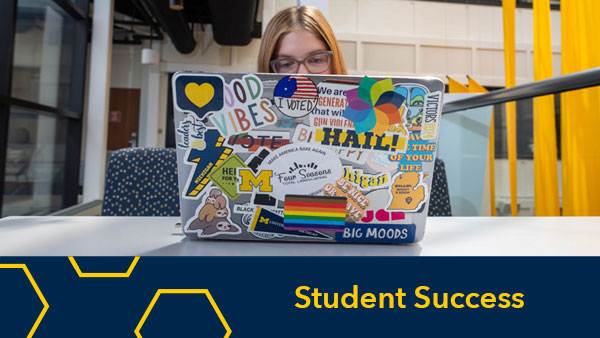
Sean Swider uses ViewPoint simulation software so students can understand collaboration, conflict in Exxon Valdez-inspired oil spill scenario
Sean Corp, Content Strategist
Teachers can often recall those special moments; the ones that made them fall in love with learning. For Sean Swider one of those moments came in 10th grade in a Global Studies class in New York state. The lesson was the pivotal moments between the various factions that eventually led to the first World War.

“The first time I ever experienced a simulation in the classroom, my teacher had us reenact the entangled alliances before World War One, but we were basically playing a big game of Risk.”
Swider wanted to bring that feeling into his own classroom and found ViewPoint, the Center for Academic Innovation’s educational technology software that enables immersive learning through role-playing simulations.
Viewpoint is a software platform that allows learners to adopt various roles, communicate with partners and other groups in real time, and have complex scenarios play out over a day or many days.
Swider previously discussed the details of the creation of the oil spill simulation, and he spoke to the Center for Academic Innovation again to discuss what inspired him to turn to ViewPoint in the first place.
It was not only a learning opportunity for the students, but also a way for his 11th grade students to understand their own power, and to learn how to communicate with one another to achieve an objective.
For several years, he taught 12th grade participation in government classes, and Swider said many students come into that final year of high school feeling like they have no power in the first place, and he’d spend half the school year convincing them of the power they did possess as young people.
“I would show them all the little things they could do and so now that I’m teaching 11th-graders, this was a chance to show them how they can engage on different levels.
“It needed to be valuable to the students no matter where they found themselves in their lives. It is also a way to show them that they have value, and they have power they can exercise,” Swider said.
The customizability and rich features appealed to Swider and were a hit with students. While the memory of the relatively straightforward turn-based strategy game Risk was his initial inspiration, he was motivated that ViewPoint allowed for a much more dynamic simulation and had in mind the more recent classic strategy game Twilight Struggle as he was beginning to outline his simulation, which would be various groups reacting to an oil spill inspired by the Exxon Valdez disaster of 1989.
“Once I decided to really embrace ViewPoint to create a simulation, and I said, alright, if I’m gonna do something, I’m gonna do something big,” Swider said. “I was inspired by the different phases of the simulation and how people’s roles might change like in Twilight Struggle,” Swider said. In that acclaimed game, two players play as either the USSR or the USA during the Cold War.
His simulation involved the students playing various roles from legislators to fisherman, and ViewPoint allowed him to create public motivations and private motivations for each group to focus on as they worked through the simulations.
Swider also played a news reporter, which allowed him to inject new information throughout the scenario and change things up based on how the simulation was playing out.
“My role was the dual role of teacher and news reporter, and I let them know when I was acting as a reporter in the simulation and not everything I could say could necessarily be trusted, and when I was a teacher there to advise them and help them succeed.”
He’s seen such enthusiasm from his students with the oil spill simulation the past couple of years, Swider said he is ready to expand and create new simulations for his classes. He’s already working on adapting one he’s done in class on the constitutional convention into ViewPoint.
“The platform is so intuitive that they understand how to use it right away with the roles and the messages and communicating among groups, so now I want to adapt more simulations throughout the year so they get comfortable with the process and the role playing aspect.”


